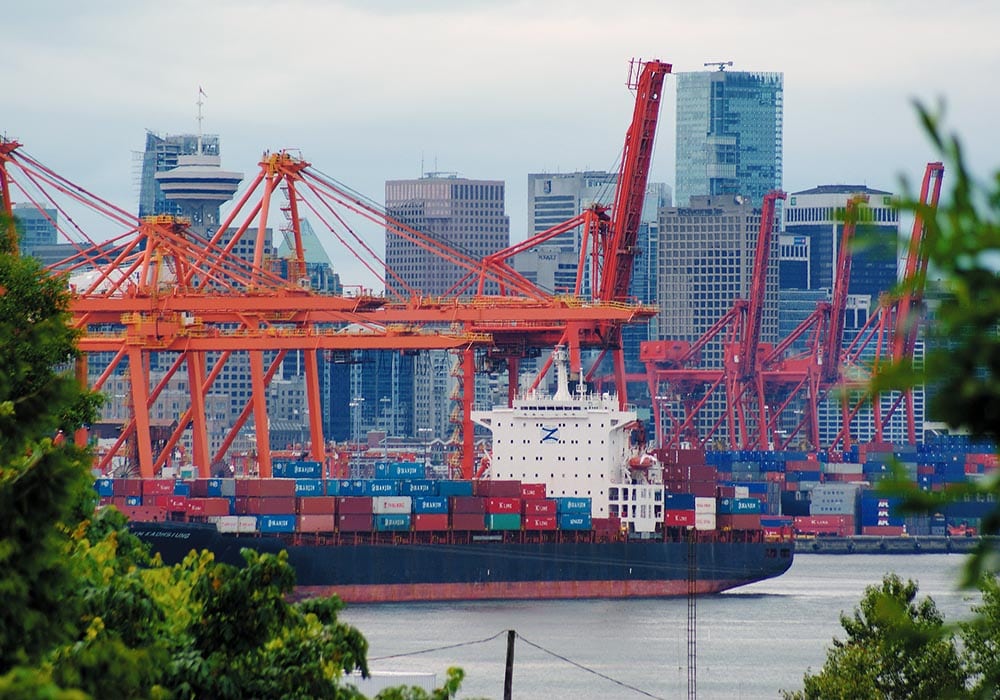Jim Carr wants the 11-country Comprehensive Progressive Trans-Pacific Partnership deal ratified in the fall
Canadian farmers want to sell more canola, pork and wheat to countries like Japan, Vietnam and Malaysia.
To make that happen, the federal government needs to ratify the Comprehensive Progressive Trans-Pacific Partnership and do it as soon as possible.
New Minister of International Trade Diversification Jim Carr is determined to ratify the 11-nation trade deal this fall.
“I do think it is possible (this fall) and that’s our goal. We want to be a part of that tranche of the first six countries to ratify. We’re committed to doing that,” Carr said in late July, after returning from an 18-hour diplomatic visit to Mexico City.
Read Also

Critical growing season is ahead for soybeans
What the weather turns out to be in the United States is going to have a significant impact on Canadian producers’ prices
“It will be a top priority for us because it opens up a huge market of 500 million people.”
The CPTPP, or TPP 2.0, is an 11-nation trade agreement that includes the key country of Japan. Canada and the other 10 countries signed the agreement in early March but it doesn’t take effect until six nations ratify the deal.
If Canada isn’t in the initial group of six, countries that are agriculture and agri-food competitors could take advantage of lower tariffs and preferential access in Japan. That could threaten Canadian exporters of pork, beef, wheat and other commodities.
The Canadian Agri-Food Trade Alliance (CAFTA) has criticized the federal government for moving too slowly on ratification. The government introduced legislation to ratify TPP-11 June 14, but it may be difficult get that done in the fall session of Parliament.
“The fastest that a trade agreement has gone through (was) 14 weeks, for Korea,” said Brian Innes, CAFTA president, adding that Parliament will sit for 11 weeks during the fall session.
Carr will push hard to ensure that Canada is among the first six countries.
“It’s a priority for the government and we will work diligently towards that goal…. We will move purposely forward during the fall,” he said. “We think there will be lots of support. Both with Parliament and (with) the population to make this happen.”
Besides TPP-11, Carr also discussed the issue of Italy and durum wheat. Italy was Canada’s top customer for durum until the country introduced country-of-origin labelling rules for pasta.
“Since (the labelling laws) were officially announced last July, we have seen Italy disappear as a Canadian customer,” said Cam Dahl, president of Cereals Canada, back in May.
Cereals Canada and the Grain Growers of Canada are frustrated because Canada has a free trade deal with Europe, which should prevent protectionist behaviour. The groups are pushing the government to file a World Trade Organization complaint against Italy.
Carr is well aware of the issue, but he’s not ready to commit to a WTO challenge.
“I’ve been in the job, I think, eight or nine days. We’re briefing up because I’m endlessly curious about these files…. We would not take anything off the table at this stage,” he said.
“We’re not particularly happy with Italy’s policy…. We had said so and we continue to say so at every opportunity.”
Carr also mentioned the possibility of a free trade deal between Canada and China. In his previous job as natural resources minister, he formed relationships with officials in Beijing and Tianjin, and he hopes to build on those to advance the trade conversation with China.


















